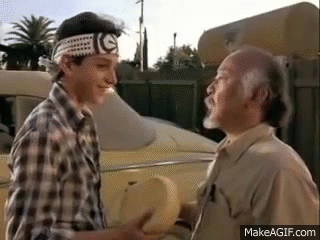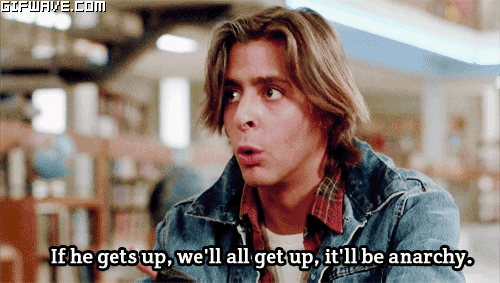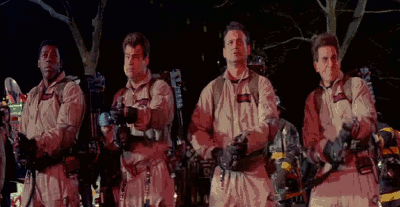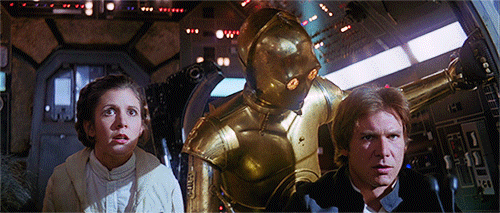
Ahh, the 1980s... gone, but never forgotten. The only decade to spawn a genre of movies all its own. Cringe, but the best kind. Big hair, big attitude, even bigger social faux pas. Tight roll your jeans, pull out your aviators, and spray that Aquanet, because we’re diving into the lessons K12 leaders can learn from ‘80s movies.

1. Mentorship makes magic happen
Mentors play a pivotal but overlooked role in skill development. Not so in the world of 1980s movies. While parents faded into the background (parents just don’t understand), mentors were fixtures in the protagonist’s character arc.Very little can take the place of expert guidance, especially in a classroom, and not just for students. Teacher mentorship unites a new teacher with a veteran teacher on a shared path to growth. A mentor is committed to ensuring their mentee grows despite challenges, objections, and setbacks. Not every moment is warm and fuzzy—tremendous tension happens between a stubborn kid and their guide (but nothing a good montage won’t fix).
From a district leader’s perspective, the benefits are twofold: a new teacher is more likely to stick around, and their more seasoned counterpart is recognized for their experience and leadership without having to leave the classroom for an administrator role.
Examples on film: Karate Kid, Back to the Future, The Empire Strikes Back

2. Good guys and bad guys face challenges
No duh.In the ‘80s (and now) people love for things to be black and white, simple to understand, with careful compartmentalization to cue our response. Reality is much more nuanced. How many of our heroes have terrible ideas, behaviors, and reactions? How many bad guys are trying their best after being dealt a crappy hand by life? The bad guys aren’t always trying to be bad, and the good guys don’t always do good.
Behavior tracking is a great idea. But if there’s no curiosity about where that behavior stems from, that data is wasting space and time. Behavior tracking doesn’t have to be exclusively punitive, either. Recognize students for their positive contributions to their school along with correcting the questionable choices. And don’t label kids good and bad.
Examples on film: The Goonies, Breakfast Club, Karate Kid, Planes Trains and Automobiles

3. Build an effective team
Not only are nostalgic favorites chock full of life-affirming lessons (and gross stereotypes 😬) but they also often depict buddies forming teams to take down bad guys. The key is to build a team of people who don’t look and think like you for maximum achievement.Ray Stantz and Egon Spengler would still be in in the university basement curating goo and spores if it wasn’t for Peter Venkman’s game show host audacity. The Goonies were close to being split up until they took matters into their own hands (and gadgets). The Rebel Alliance always swooped in at the last second to save their teammates.
Team up with the most outlandish, extraordinary folks you can. It’s worth it.
Examples on film: Ghostbusters, Back to the Future, Who Framed Roger Rabbit?, 48 Hrs, The Empire Strikes Back, Princess Bride

4. Root for your underdogs
Above all, the golden theme of ‘80s movies was that those you least expect are going to triumph (or maybe you could see it coming all along! Go ahead, fold your arms, crack half a smile, and nod your head in a satisfied manner).Some superstars fly under the radar and don’t attract a second glance. The so-called problem child ends up saving the day. Spot your underdogs and add them to your next A-team forming. You might be amazed at what happens next.
How you accomplish this feat is up to you. Implement a more coaching-oriented leadership style with check-ins about how staff is feeling today and what they’re dreaming of accomplishing in the future. Make PD a self-guided effort and see which direction people take their development.
Examples on film: Karate Kid, The Goonies, Back to the Future, Empire Strikes Back

A note
There are plenty of concepts, behaviors, and language in old movies that are best kept in the past. Please use your professional judgment and personal comfort to choose which movies to watch and take lessons from.This article was made possible thanks to invaluable ideas from multiple contributors. The author and illustrator were just two of many great things to come out of the 1980s.
WHAT'S NEXT FOR YOUR EDTECH? The right combo of tools & support retains staff and serves students better. We'd love to help. Visit skyward.com/get-started to learn more.

|
Erin Werra Blogger, Researcher, and Edvocate |
Erin Werra is a content writer and strategist at Skyward’s Advancing K12 blog. Her writing about K12 edtech, data, security, social-emotional learning, and leadership has appeared in THE Journal, District Administration, eSchool News, and more. She enjoys puzzling over details to make K12 edtech info accessible for all. Outside of edtech, she’s waxing poetic about motherhood, personality traits, and self-growth.




